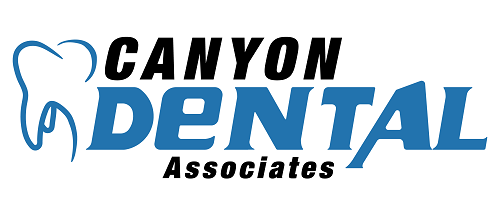Introduction to Preventive Dentistry
Preventive dentistry is a crucial aspect of maintaining optimal oral health and preventing common dental diseases such as tooth decay and gum disease. It encompasses all dental care practices aimed at avoiding the onset of oral health issues before they require complex treatment. This proactive approach focuses on daily care routines and routine dental visits, making it easier to preserve natural teeth and reduce the need for extensive procedures.
Regularly visiting the dentist for checkups and cleanings is essential for preventive dentistry. Seeing a dentist regularly helps with the early detection of dental problems and supports good oral health.
Basic dental care forms the foundation of preventive dentistry. This includes consistent brushing and flossing, using fluoride-based products, and receiving routine dental check-ups. Establishing good oral health habits early in life, such as daily brushing and flossing, supports good oral health and helps prevent dental and systemic health issues. By emphasizing early intervention and healthy habits, preventive dentistry helps reduce oral health disparities across different age groups and populations. Low-income adults are more likely to lack access to dental insurance and preventive care, which can lead to preventable oral health issues.
Regular dental visits and good oral hygiene habits are essential not only for oral health but also for maintaining overall physical health. The condition of your teeth and gums can influence everything from your ability to eat and speak to your risk of developing chronic diseases.
The American Dental Association (ADA) recommends regular dental exams and cleanings—typically every six months—as part of a comprehensive preventive care plan. These visits allow dental professionals to identify issues early and recommend timely interventions.
Preventive dentistry services, such as fluoride treatments and dental sealants, further support long-term oral health by reinforcing tooth enamel and protecting vulnerable areas from decay. These simple, non-invasive treatments offer powerful protection, especially for children and those at higher risk of cavities.
Benefits of Preventive Dental Care
Preventive dental care plays a critical role in avoiding oral health problems like cavities, gingivitis, and periodontal disease. By catching issues early or preventing them altogether, patients can avoid discomfort, preserve their natural teeth, and reduce the need for invasive procedures.
One of the major benefits of preventive dental care is its cost-effectiveness. By investing in regular check-ups and cleanings, patients often avoid the high costs associated with restorative procedures such as fillings, crowns, or root canals. Preventive care also minimizes the risk of dental emergencies, which can be both painful and expensive.
Good oral hygiene habits are the foundation of preventive care. Brushing twice a day with fluoride toothpaste, flossing daily, and maintaining a healthy diet are simple yet effective ways to prevent plaque buildup and decay. Poor oral hygiene can lead to significant oral diseases that impact both health and quality of life, making these habits vital.
Beyond the mouth, preventive dental care supports systemic health. Studies have linked poor oral health to serious health conditions, including heart disease, diabetes, and oral cancer. Preventing oral infections helps reduce inflammation and bacteria that can enter the bloodstream and affect other organs.
Maintaining healthy teeth and gums through preventive care also reduces the risk of tooth loss, which can impact speech, nutrition, and self-esteem. With routine care, patients can enjoy a lifetime of healthy smiles and improved well-being.
Types of Preventive Dental Services
Preventive dental services include a variety of professional treatments designed to stop oral health issues before they start. These services are typically performed during regular dental check-ups and include scheduling regular oral exams as part of preventive care, teeth cleaning as a routine component, fluoride treatment to strengthen enamel and prevent tooth decay, and X-rays to assess and monitor oral health.
Dental sealants are another valuable preventive service. Applied to the chewing surfaces of molars, sealants act as a barrier against decay-causing bacteria. They are especially beneficial for children, whose back teeth are often more prone to cavities.
Pediatric dentistry is a specialized field focused on preventive care for children. Pediatric dentists provide regular exams, teeth cleanings, and fluoride treatments, along with education for children and their parents about proper oral hygiene. These early interventions help set the stage for lifelong oral health.
Oral cancer screenings are also an important part of preventive dental visits. By examining the mouth, neck, and throat for signs of cancer or precancerous conditions, dentists can detect problems early, when treatment is most effective.
Preventive visits often include minor treatments that monitor or address early signs of dental issues. For example, early-stage cavities may be managed with fluoride or resin infiltration, delaying or avoiding the need for fillings.
Overall, regular preventive dental care helps detect problems early, minimize discomfort, and reduce the need for extensive and expensive dental procedures down the road. By prioritizing preventive services, patients can often avoid the need for more extensive treatment services. Preventive services focus on maintaining oral health and stopping problems before they start, while treatment services address existing dental problems such as fillings, root canals, or extractions.

Oral Health Risk Assessment
Oral health risk assessment is a foundational step in preventive dentistry, allowing dental professionals to identify each patient’s unique risk factors for oral diseases such as tooth decay, gum disease, and oral cancer. During a risk assessment, your dentist evaluates your medical history, lifestyle habits, oral hygiene practices, diet, and family history to determine your likelihood of developing dental problems.
This personalized approach enables the creation of tailored preventive dental care plans. For example, individuals with a history of frequent cavities, poor oral hygiene, or chronic health conditions like diabetes may require more frequent dental visits, additional fluoride treatments, or specific oral hygiene instructions. Children, adults, and seniors all benefit from risk assessments, as they help detect developing dental problems early and guide interventions that can prevent costly treatments down the line.
By regularly undergoing oral health risk assessments, patients and dental professionals can work together to maintain optimal oral health, address high-risk behaviors, and ensure that preventive services are targeted where they are needed most. This proactive strategy is key to achieving better oral health outcomes and reducing the risk of serious oral and overall health issues.
Role of Fluoride in Preventive Dentistry
Fluoride is a cornerstone of preventive dentistry due to its proven ability to strengthen tooth enamel and protect against decay. Fluoride treatments are commonly applied during dental visits, especially for children and individuals at higher risk for cavities.
In addition to professional treatments, daily use of fluoride toothpaste and mouth rinses is essential for maintaining strong, healthy teeth. These products help remineralize enamel and inhibit bacterial growth in the mouth.
Community water fluoridation is one of the most effective and widespread public health strategies for preventing tooth decay. The Centers for Disease Control and Prevention (CDC) has identified water fluoridation as a key factor in improving oral health across populations.
Fluoride varnishes, which are applied directly to the teeth, offer concentrated protection. They are particularly useful for patients with a history of cavities or dry mouth conditions that increase the risk of decay.
When used regularly, fluoride treatments significantly reduce the incidence of tooth decay, making them an essential component of both pediatric and adult preventive dental care.
Importance of Dental Cleanings
Dental cleanings, also known as prophylaxis, are professional cleanings performed by dental hygienists to remove plaque and tartar that cannot be eliminated by regular brushing and flossing.
These cleanings are essential for maintaining gum health and preventing periodontal (gum) disease. Left untreated, gum disease can lead to gum recession, tooth loss, and even bone loss.
Professional cleanings also eliminate bacteria-laden debris from between the teeth and below the gumline, reducing inflammation and promoting a cleaner, healthier mouth.
Another benefit of dental cleanings is the prevention of halitosis, or bad breath. By removing odor-causing bacteria and plaque, cleanings help maintain a fresh and healthy smile.
Most dental insurance plans cover routine dental cleanings every six months, making it easier for patients to prioritize this important aspect of oral care. Reviewing your dental plan can help you understand your coverage and make the most of your preventive benefits.

Use of Dental Sealants
Dental sealants are a highly effective preventive dental service designed to protect the chewing surfaces of the back teeth, where tooth decay most often starts. Sealants are thin, protective coatings applied to the grooves and pits of molars and premolars, creating a barrier that keeps out food particles and bacteria.
Sealants are especially beneficial for children and teenagers, whose newly erupted permanent teeth are most vulnerable to cavities. However, adults at higher risk for tooth decay can also benefit from this simple, painless procedure. The American Dental Association recommends dental sealants as a proven way to prevent tooth decay and maintain a healthy smile.
Applying sealants is quick and non-invasive, and the protection can last for several years with proper care. Studies show that sealants can reduce the risk of decay in molars by nearly 80%, making them a cost-effective addition to any preventive dentistry plan. Most dental insurance plans cover sealants for children, and some extend coverage to adults at high risk.
By including dental sealants as part of your preventive oral health care routine, you can significantly lower your risk of cavities and avoid the need for more extensive dental treatment in the future.
Role of Nutrition in Preventive Dentistry (new)
Nutrition plays a vital role in preventive dentistry and overall oral health. A balanced diet rich in vitamins, minerals, and fiber supports strong teeth and healthy gums, while poor eating habits can increase the risk of tooth decay, gum disease, and other oral health problems.
Foods high in calcium, such as dairy products, leafy greens, and almonds, help strengthen tooth enamel and maintain bone health. Vitamin C-rich fruits and vegetables support gum health and help prevent periodontal disease. Drinking plenty of water, especially fluoridated water, also helps wash away food particles and bacteria, reducing the risk of cavities.
Conversely, frequent consumption of sugary snacks, acidic beverages, and processed foods can erode tooth enamel and feed harmful bacteria, leading to cavities and gum disease. Limiting these foods and choosing tooth-friendly snacks like cheese, nuts, and crunchy vegetables can make a significant difference in maintaining oral health.
Dental professionals often provide dietary counseling as part of preventive dental care, helping patients make informed choices that support both oral and overall health. By adopting a healthy diet and practicing good oral hygiene, you can protect your teeth and gums for life.
Preventive Dentistry for Children
Preventive dentistry for children is essential for building strong, healthy teeth and instilling lifelong oral hygiene habits. Children are especially susceptible to cavities, making early and consistent care crucial.
Pediatric dentists offer comprehensive preventive services tailored to children, including exams, cleanings, fluoride applications, and dental sealants. These services help protect developing teeth and support healthy oral development.
Teaching children to brush and floss properly at an early age helps prevent decay and gum disease. Parents play a key role in modeling good habits and ensuring children maintain consistent routines.
A balanced diet, rich in fruits, vegetables, and calcium, also supports oral health. Limiting sugary snacks and drinks can significantly reduce the risk of cavities in children.
Early preventive care also allows for the identification of orthodontic issues or other developmental concerns, which can be addressed more effectively when caught early.
Preventive Strategies for Adults and Seniors
As we age, our oral health needs change, making preventive strategies for adults and seniors especially important. Adults may face challenges such as gum recession, increased risk of periodontal disease, and the effects of lifestyle factors like smoking or stress. Seniors often contend with dry mouth caused by medications, root caries, and a higher risk of losing teeth.
Regular dental visits remain essential for early detection of oral diseases, oral cancer screenings, and professional cleanings. Adults and seniors should also be vigilant about maintaining good oral hygiene at home—brushing twice daily with fluoride toothpaste, flossing, and using mouth rinses as recommended.
For those with limited dexterity, adaptive oral hygiene tools such as electric toothbrushes or floss holders can make daily care easier. Managing chronic health conditions, staying hydrated, and eating a balanced diet are also crucial for maintaining oral and overall health.
Preventive dental care for adults and seniors may include more frequent cleanings, fluoride treatments, and monitoring for signs of oral cancer or systemic health issues. By staying proactive and working closely with your dental team, you can enjoy a healthy mouth and a better quality of life at every age.
Pediatric and Special Needs Care
Pediatric and special needs care are critical aspects of preventive dentistry. Children and individuals with special health care needs often require tailored approaches to ensure their oral health is properly managed.
These groups may face challenges such as limited dexterity, sensory sensitivities, or difficulty understanding oral hygiene routines, increasing their risk for cavities and gum disease.
Preventive services like fluoride treatments and sealants provide much-needed protection for these patients. Pediatric dentists are specially trained to deliver compassionate, effective care to children and those with special needs.
Establishing dental visits early—by the time a child’s first tooth appears—sets the foundation for long-term oral health. Early exposure also helps reduce dental anxiety and creates positive experiences.
For individuals with special needs, preventive dentistry may involve customized treatment plans and coordination with caregivers. Consistent care can help prevent infections, tooth loss, and the need for more invasive procedures.
Best Practices for Preventive Dentistry
Effective preventive dentistry begins with regular dental visits—typically every six months—for exams and cleanings. These visits allow for early detection of potential problems and timely intervention.
Practicing good oral hygiene at home is equally important. This includes brushing twice daily with fluoride toothpaste, flossing once a day, and using mouthwash as recommended. Proper dental care at home is essential for preventing oral health issues and maintaining a healthy mouth.
A balanced diet plays a significant role in oral health. Eating foods rich in vitamins and minerals, and avoiding excess sugar and acidic beverages, helps protect enamel and prevent decay.
Fluoride treatments and dental sealants are powerful tools in the fight against cavities. Ask your dentist if these services are appropriate for you or your child.
Consistent daily habits—combined with professional care—not only create the best defense against oral disease and support long-term dental health, but also help keep gums healthy and prevent periodontal problems.
Patient Compliance and Motivation (new)
Patient compliance and motivation are key factors in the success of preventive dentistry. Even the best preventive dental care plans rely on patients consistently following good oral hygiene habits and attending regular dental visits.
Dental professionals play a vital role in educating patients about the importance of preventive care and demonstrating proper brushing and flossing techniques. Motivational strategies, such as setting achievable goals, providing positive reinforcement, and using reminders or digital apps, can help patients stay on track with their oral health routines.
Building lasting habits often requires addressing barriers such as a lack of time, forgetfulness, or dental anxiety. Open communication between patients and dental teams can uncover these challenges and lead to practical solutions, such as scheduling regular reminders or offering support for those with dental fears.
Ultimately, empowering patients with knowledge, encouragement, and the right tools fosters better oral health outcomes. By staying motivated and committed to preventive care, individuals can reduce their risk of oral diseases, avoid costly treatments, and enjoy a healthy smile for years to come.
Value of Preventive Oral Health Care
Preventive oral health care is not just about keeping teeth clean—it’s a vital part of total wellness. Preventing dental disease helps reduce the risk of other health issues and improves quality of life.
By identifying and treating oral health problems early, patients can avoid costly dental procedures and reduce the burden on the healthcare system.
Preventive care has also been linked to lower risks of systemic health issues such as heart disease, diabetes, and certain cancers. Healthy gums and teeth support overall bodily health and reduce chronic inflammation.
A healthy smile enhances self-confidence and contributes to social and emotional well-being. Maintaining that smile through preventive care boosts overall happiness and life satisfaction.
Regular dental care should be considered a core component of your general health care routine, not a luxury.
Dental Services and Preventive Care
Dental offices offer a wide range of preventive services aimed at maintaining oral health. These include oral exams, professional cleanings, digital X-rays, fluoride treatments, and sealants.
Fluoride treatments and sealants are particularly beneficial for cavity prevention and are recommended for both children and adults at higher risk for tooth decay.
Pediatric dentists focus on preventive care for children, ensuring early detection and healthy oral development through regular check-ups.
Preventive services also help avoid the need for restorative procedures by catching issues early. This leads to better outcomes, less discomfort, and lower long-term costs.
Most dental insurance plans cover preventive services. Understanding your benefits and using them regularly ensures you get the most value from your coverage.
Affordable Access to Dental Care
Affordable access to dental care is a public health priority. Without it, many individuals delay or skip dental visits, leading to more severe oral health problems.
Community health clinics and non-profit organizations provide low-cost or free dental care to underserved populations, helping bridge the gap in access.
Dental schools and universities offer care at reduced fees, supervised by experienced instructors, as part of student training programs.
Preventive dental care is far more cost-effective than emergency or restorative treatments. Regular visits reduce the need for complex and expensive procedures.
Accessible preventive care not only saves money but also supports better overall health outcomes, making it an essential service for all communities.
Education and Community Outreach
Oral health education empowers individuals and communities to make informed decisions about their dental care. Teaching proper brushing, flossing, and dietary habits helps reduce the risk of oral disease.
Dentists and hygienists often participate in school programs, health fairs, and community events to share oral health tips and encourage regular check-ups.
Outreach programs provide care to populations with limited access to dentists, offering cleanings, exams, and education on preventive practices.
Public health initiatives promote oral hygiene through awareness campaigns and partnerships with schools, health systems, and community organizations.
These efforts collectively contribute to lowering oral health disparities and improving the well-being of entire communities.
Research and Development in Preventive Dentistry
Ongoing research continues to expand the scope and effectiveness of preventive dentistry. Scientists are developing new materials and techniques to better prevent and manage dental diseases.
Innovations include bioactive dental materials, improved fluoride delivery systems, and smart toothbrushes that monitor brushing habits and provide feedback.
Researchers are also exploring the connections between oral health and systemic health. For example, studies suggest that poor oral health during pregnancy can be linked to premature birth or low birth weight.
As these discoveries are integrated into clinical practice, they improve the standard of care and enable more personalized treatment options for patients.
Investments in preventive dental research are investments in the future of healthcare, reducing costs and improving lives across all demographics.
The Future of Preventive Dentistry
The future of preventive dentistry is being shaped by emerging technologies and a greater understanding of the mouth-body connection. Innovations such as teledentistry, AI-powered diagnostics, and minimally invasive treatments are transforming care delivery.
Personalized preventive care will become more widespread, with dentists using digital tools and patient data to tailor hygiene recommendations, product choices, and treatment plans.
Advanced preventive solutions like antimicrobial coatings, improved sealants, and salivary diagnostics will make it easier to detect and prevent oral disease before it begins.
Preventive dentistry will also continue to integrate with general health care systems, emphasizing oral health as an essential element of whole-body wellness.
By staying engaged with preventive care and embracing these advances, patients can ensure healthier futures with fewer dental complications.
Conclusion
In conclusion, preventive dentistry is the key to achieving and maintaining excellent oral health throughout life. Through daily oral hygiene, regular dental visits, and the use of preventive treatments like fluoride and sealants, individuals can significantly reduce their risk of cavities, gum disease, and other oral health issues.
Preventive dental care not only preserves your smile but also supports your overall health by reducing the risk of serious conditions such as heart disease and diabetes. With most dental insurance plans covering preventive services, access to these essential treatments is more affordable than ever.
By making preventive dentistry a part of your regular health care routine, you can enjoy a healthier mouth, avoid costly procedures, and feel more confident with your smile for years to come.


